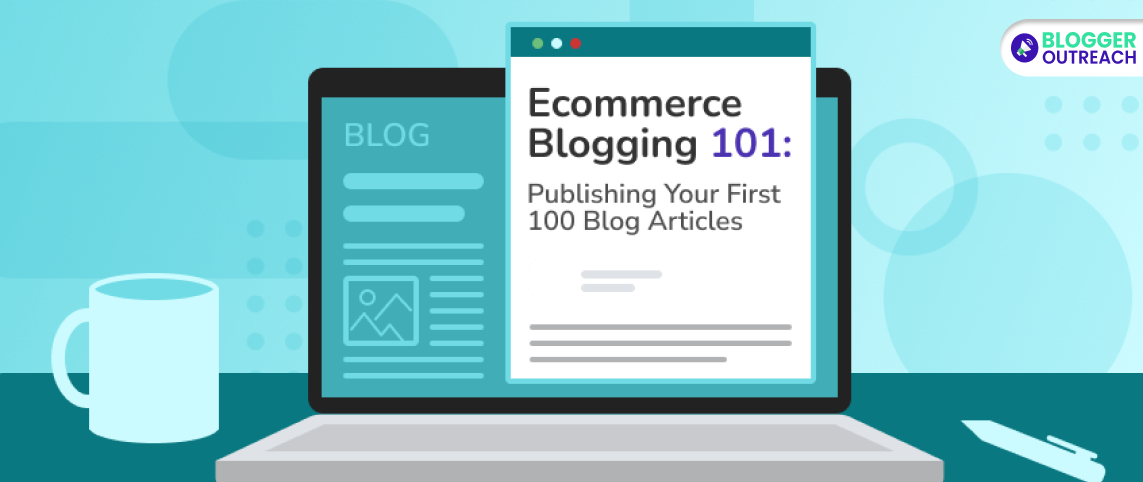Table Of Content
- 1 10 Different Types Of Social Media Platforms
- 1.1 1. Conventional Social Networking Sites
- 1.2 2. Image Sharing Platforms
- 1.3 3. Short-form Video Platforms
- 1.4 4. Live Streaming Platforms
- 1.5 5. Discussion Forums And Communities
- 1.6 6. Private Community Platforms
- 1.7 7. Consumer Review Networks
- 1.8 8. Blogging And Publishing Sites
- 1.9 9. Decentralised Social Media Networks
- 1.10 10. Social Shopping Sites
- 2 What Is The 555 Rule On Social Media?
With a plethora of social media channels out there, it can be enticing for agencies to join all or bury your head in the sand. Agencies fail to understand that not all types social media platforms are created equally and to become successful in the SEO landscape, one needs to prioritize.
Why does Your Business Need Different Types of Social Media Platforms to Achieve Goals?
If you want your business to succeed, you must use different types of social media platforms. Every platform has different features to improve your visibility and brand recognition, and they all draw in different audiences.
You can greatly increase engagement and conversion rates by customizing your content to appeal to particular demographics, such as Instagram for visual engagement and LinkedIn for business-to-business networking.
Additionally, by expanding your reach, a multi-platform strategy gives you a competitive edge, boosts your credibility, and provides insightful data to improve your marketing. This multifaceted strategy guarantees that your company remains flexible and efficient in the ever-changing digital environment of today.
10 Different Types Of Social Media Platforms
Have a look at different types of social media platforms.
1. Conventional Social Networking Sites

Used For: Directly connecting with customers in specific areas, interest groups or communities.
How Businesses Can Benefit From Them:
- These are the types of social media platforms that focus on connecting people by amplifying your voice and reach. They are flexible and designed to help you share visual and textual content with whomever you want. Features of these sites include event organising, networking, and advertising.
- They gather important details about their users. This allows you to run specific targeted ads and post content to connect with the right audience to run contests, promote local events, or share useful information.
- You can also use these platforms to engage with your customers directly using direct messaging tools.
Examples: Facebook, Threads, X (formerly Twitter)
2. Image Sharing Platforms

Used For: Brand building, social commerce, and visual storytelling
How can businesses benefit from image-sharing social networking sites?
Visual images create the most impact in reaching the target audience and boosting visibility. Almost all image-based social media channels are great for social commerce.
These Offer Different Ways To Shop In-App And Avoid The Need To Lead Traffic To External Sites:
- You can directly sell to your customers by building a gratifying in-app shopping presence.
- You can create a storefront using Instagram Shopping, tag products in your videos and images and mention the products in your profile bio.
- Pinterest is one of the top social media platforms for shoppers that helps you connect your store catalogue and adds shoppable links to search results. Much like a blue tick on Instagram, you get a Verified Merchant badge on your profile, which increases your brand credibility amongst users.
- Snapstore, one of the best types of social media features on Snapchat for brands, lets you upload a catalogue and incorporate a ‘shop’ tag on the profile.
- You can also use the TikTok Photo Mode to showcase your catalogue, announce a giveaway, or tell a longer story.
Examples: Instagram, Snapchat, Pinterest, TikTok (Photo Mode)
3. Short-form Video Platforms

Used For: Sharing short video-form content (between five and ninety seconds long)
How Businesses Can Benefit From Them:
Most types of social media platforms enable you to create and share short-form video content to spread brand awareness and give life to products.
- This type of social media content is quick to make and edit, making it a perfect business strategy for small businesses.
- With the rise of different trends, it has become easier for businesses to use short video content to promote their products and/or services.
- However, brands must know that the short video content must be engaging, entertaining or inspiring. Users will not be enticed to engage with your brand if the content becomes too promotional.
Examples: Instagram reels, YouTube Shorts, TikTok
4. Live Streaming Platforms

Used For: Broadcasting live video to multiple viewers at once
Live streaming platforms are great for B2B social media types as they allow you to conduct seminars and webinars over the internet. Here are some important facts that you must know:
- Live Streaming popularity shot up threefold with the outbreak of the 2020 pandemic. By late 2023, nearly 35% of users aged 16-64 watched live streams weekly.
- You can use live streams to interview well-known guests, host (ask me anything) AMA sessions, and launch products.
- Live Streams include features such as polls and live chat, which allow users to directly interact with the hosts, increasing brand reach.
Examples: Instagram Live, Facebook Live, Twitch, YouTube, and TikTok Live
5. Discussion Forums And Communities

Used For: Asking and answering questions, forming communities, and networking around interest and niche-based topics.
Unlike most media sharing platforms, these types of social media are quite challenging for brands to crack. Platform users can be wary of businesses, including the ‘sales talk’ in a community space.
Hence, the key to cracking the code is by adding value for your customers. Inform them about your industry-expertise knowledge and answer relevant questions related to your niche. Listen to the issues put forth in these channels and offer effective solutions.
Examples: Quora, Reddit
6. Private Community Platforms

Used For: Creating different communities to expand the network by creating screening measures for new members.
Here’s How You Can Use These Platforms For Your Business:
- Private groups bring the community members closer together in a close-knit group. They bond over shared problems and help each other with solutions without having the ‘small talk’ of unrelated conversations.
- You can also use your private community to encourage user-generated content, engage with new customers, and run promotions that add value to the community members. This can also be a welcome screen to ask members questions and learn more about your target audience.
Examples: Discord (popular among gamers), Patreon, Slack (used for workplace communications), Mighty Networks (community building platform), Facebook Groups.
7. Consumer Review Networks

Used For: Using such consumer review networks helps search, share, and review different information about services, brands, and products.
How Businesses Can Benefit From Them:
- When businesses use these review networking sites, it helps them conduct market research about the likes and dislikes of their customers.
- This also helps businesses claim more credibility with positive reviews. Positive reviews influence users to engage with the brand and entice new users to purchase.
- Social media platforms such as Zomato and Yelp offer location-based reviews that help businesses run location-based social campaigns.
Examples: Zomato, Yelp, TripAdvisor, etc
8. Blogging And Publishing Sites

Used For: These social media platforms are best for discovering, publishing, and commenting on social media blogs, articles or any other type of content on the web.
While Blogger and WordPress are the most conventional blogging platforms, Medium (social publishing site) and Tumblr (micro-blogging service) are the latest in the field that gives the whole idea of written publications a social media angle.
Here’s How You Can Use These Types Of Social Media Platforms For Your Business:
- Businesses that want to boost their content marketing strategies should use these sites to share content on various other social media sites such as LinkedIn, Twitter, Facebook, etc.
- The content used in these platforms further helps create a niche for your audience in search of specific information concerning your niche.
Examples: Tumblr, Medium, WordPress
9. Decentralised Social Media Networks

Used For: Engaging with your community, building brand awareness, and monitoring ongoing conversions.
How Businesses Can Benefit From Them:
- These sites help businesses connect with their users to carry out UGC and run UGC campaigns.
- Decentralized social media sites such as Mastodon differ from other traditional social media sites. While traditional sites work on a centralized platform where one company makes all the decisions on its servers, decentralized networks distribute information across all servers. This means your information is not controlled by any entity or confined to a single server.
- While Mastodon does not allow advertising, Bluesky is a platform that remains ad-free and invite-only. Businesses can use this platform to conduct market research, create community, and increase brand reach.
Examples: Mastodon, Bluesky
10. Social Shopping Sites

Used For: These sites help you find the latest trends in the market along with general shopping tips. They further help you follow different brands, make a purchase, or share interesting things.
How Businesses Can Benefit From Them:
- Businesses can use shopping networking sites to boost engagement, create brand awareness, and sell products on effective platforms.
- These sites are highly result-driven for startups and small businesses to sell their products without a physical store.
Examples: Etsy, Fancy, Polyvore
What Is The 555 Rule On Social Media?
The 555 rule is a strategic guideline for businesses on social media that aims to balance and expedite your efforts at engagement, distribution, and content creation.
It usually consists of three main parts: sharing five pieces of content that promote your business, five pieces of content from other creators or outside sources, and five ways to interact with your audience, like, comment, and reply to comments.
This strategy makes sure that your social media presence isn’t too self-serving, promotes relationship-building through sincere interaction, and benefits your audience by sharing a variety of content.
In order to keep your feed interesting and dynamic, variations of the 555 rules might also stress using five different types of content, distributing content across five platforms, and dedicating five minutes to content creation.






